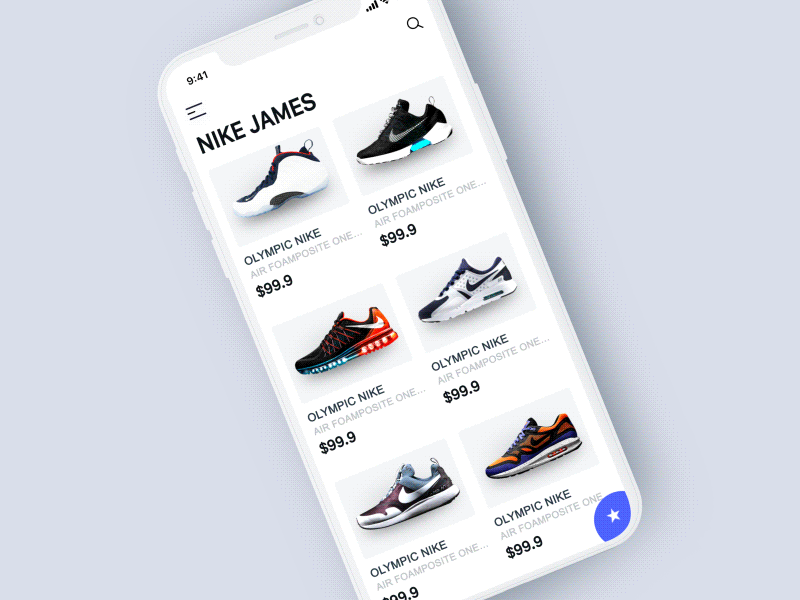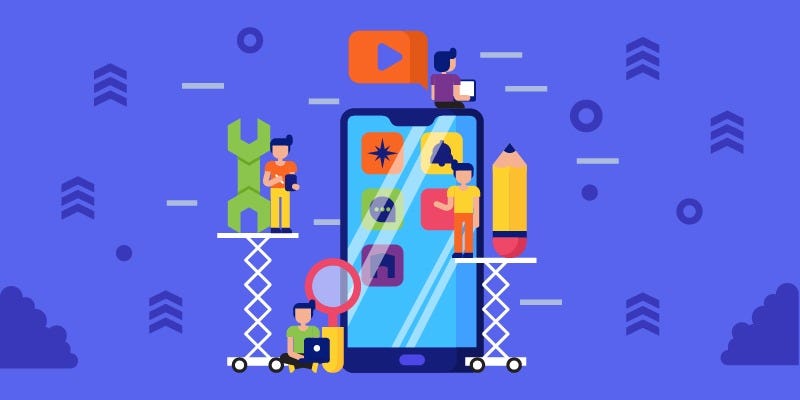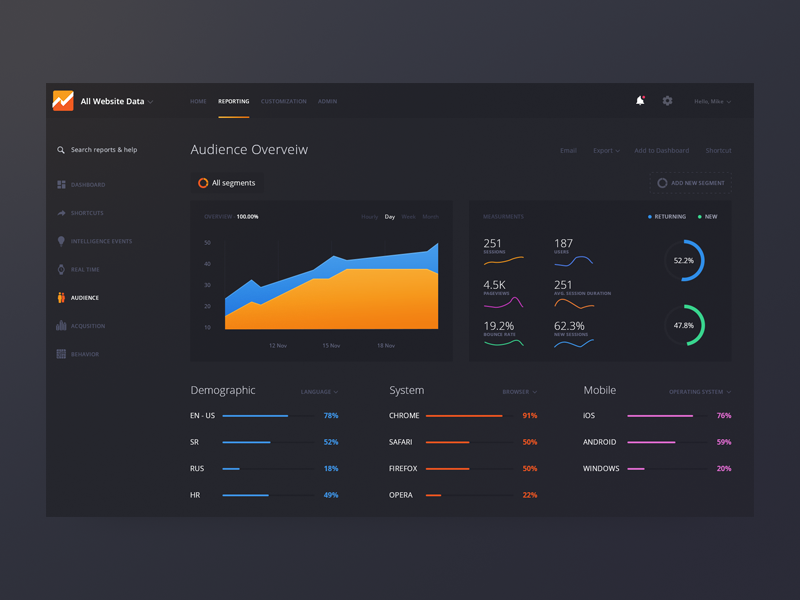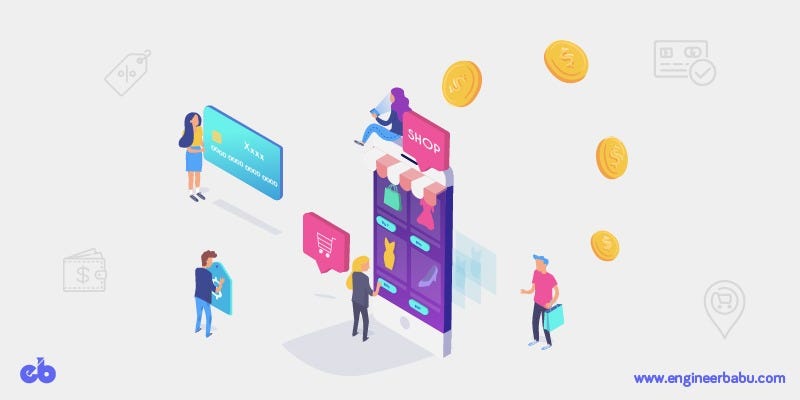Latest news about Bitcoin and all cryptocurrencies. Your daily crypto news habit.

Shopping Spree, Shopaholic, Fashionista, and what not! All thanks to Social Media Platforms for bringing in the fact that people love to shop; irrespective of the time; irrespective of the place.
With the touch of digitization, the entire brick and mortar commerce arena revamped itself into e-Commerce, wherein people started shopping online with the very ease provided by their devices, that too in the very comfort of their home.
e-Commerce website, what once was a revolution has been commemorated by e-Commerce mobile application. Indeed! e-Commerce mobile apps with the slogan, “Shop on-the-go” are reigning over the smart users and their smartphones today.
Amazon, the biggest player in the e-Commerce game along with its counterfeits Alibaba, Myntra, Snapdeal.
They have become an integral part of people while malls and supermarkets are being lowered to “Selfie zones”, “window shopping fads”, and “Check-in” hangouts.
Who would want to spare the precious time of their weekends, standing in long queues at the billing counter, waiting for their turn while France is playing against Croatia! Well, with e-Commerce mobile app, all they could do is shop and yet never miss the game.
That’s e-Commerce mobile app for you!
Who doesn’t have a dream of running a successful business with their shops crowded? e-Commerce mobile app can be your dream come true business as you can target the customers from across the world and you don’t have to travel to market for your brand; that’s an added advantage.
Businesses are changing their preferences to build an e-Commerce platform. They are choosing mobile apps instead of websites. These businesses mostly consist of startups.
To start with, it is important that you define your e-Commerce business goals with utmost clarity.
What type of e-Commerce mobile app do you want to launch your business — Android or iOS?
- Are you selling your products or Vendors will register?
- Who is your target audience?
- Who will manage the delivery, you, your vendor or 3rd party?
- How they can upload and change product pricing?
- How commission will work, Can vendor take the payment directly?
- Who can leave review, only verified customers?
Once this is sorted, you can move to the next important step which involves defining the right features for your e-Commerce Mobile Application.
Features are the reflection of your USP. That is going to make all the difference for your target audience. Basically, they are but the deciding factors of whether your revenue grows or flows away to your competitors. Hence, it is important to plan the features for developing your e-Commerce mobile app.
Things to Take Care of While Building an e-Commerce Mobile App
Right from conceptualization of your idea to its Beta version as a Mobile App, there is a lot to take care.
The things you need to take care are Ease of Navigation of the user, the Uniqueness of your idea/concept, Accessibility, and lot more.
How the flow of communication will be between the platform and the customers or the vendors and the customers (if there are vendors on your platform) is a crucial factor too. If you have identified your stakeholder, which may include your team and employees too. This communication platform within the app has to be effective.
Exploring different platforms of verticals other than your ideas; inspires you to create something more elaborate in terms of content and what you are providing to your customers.
Choosing an Open-source or SaaS Platform has its own pros and cons. Based on your budget and future aspiration you can pick one of it, comparing the features which fit your pocket and current needs.
Key Aspects for e-Commerce App Development
Before proceeding any further, let me give you a detailed glimpse of the key aspects to focus on while developing an e-Commerce mobile app:
Market Analysis and Buyer Persona:
The basis of an e-Commerce mobile app development lies in determining the buyer persona for your business. Ask yourself, “ Who are you selling your products to?” Accordingly, carry out your research for your target audience.
Analyze the behavior and patterns of your target audience. Know their digital age and their likes & dislikes. This will help you create your app as relatable as possible for them.
Know your Competitors:
Extract a list of your competitors. Create a separate list of what they are into and what makes them the obvious choice for the buyers. Do not duplicate their features or their business model, rather research well about the business model and make the maximum out of your analysis.
Choosing Technology:
Know the ins and outs of your business so as to decide on the technology to create your e-Commerce mobile app. Keep an eye on the budget of development, know your inventory and select the CMS, database, framework, and most importantly the back-end and front-end languages to code your app.
If you want a better time to market, go for the hybrid app, if you want sustainability, go for a native one. Similarly, you have to decide whether you want to launch an Android app, an iOS app or both at the same time, keeping in mind the device usage of your target audience.
UI and UX Design:
Give your brand the voice it deserves by soothing color schemes, appealing visuals, and smooth transitions for your customers from one page to another. Create options for your logo and leverage it to the optimum. That is going to be your business’ identity for your target customers. Play with the subconscious mind of your customers by leveraging smart branding tactics for creating a lasting impression.
Considering that we have covered the understanding and analysis to get started with building an e-Commerce Mobile App. Let’s move on to the primary features to develop such an app.
Below is a list of features extracted from the successful e-Commerce Mobile App and you cannot afford to miss any of these:
A Simpler Registration Process
As easy as this sounds, it can be an exhaustive one for your customers and they might simply choose to uninstall the app with pages and pages of information to fill in. Who’s got time anyways
Ensure an easy registration process. With everybody having a Social Media Account today, you can enable ‘sign up’ and ‘log in’ with two clicks at maximum and your customer is on-board! Plus, an extra brownie point for learning their preferences through their digital age on their SocialMedia Accounts!
Supports Multiple Payment Options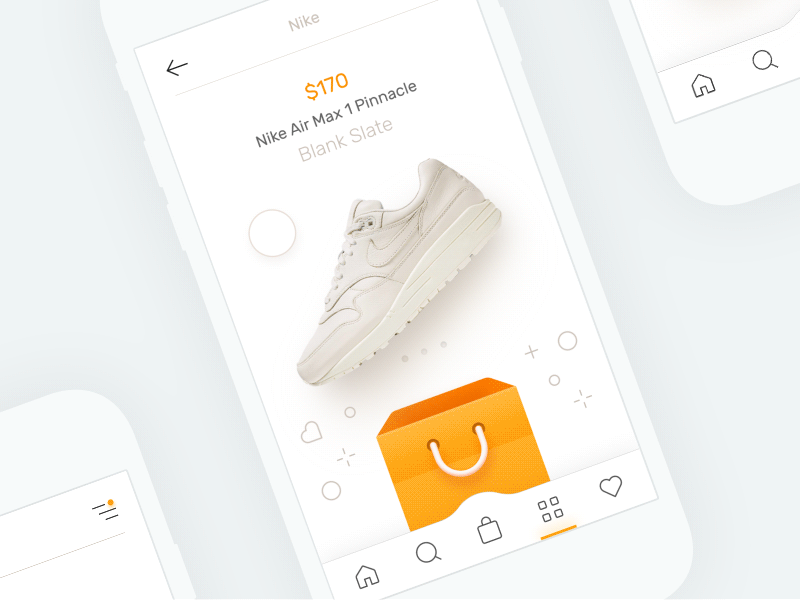
Let’s say, you have a big fat customer who mostly shops online and visits your e-Commerce mobile app to give it a try. After dumping his stuff into the cart, he realises you do not have the payment option that he prefers. You just lost a big customer. And many more who prefers the payment option that your app does not offer.
To play safer and smarter as an e-Commerce businessman, you have to open the doors to the most popular payment methods. Credit card, debit card, net banking, and e-Wallets being at the top, ensure that you subtly push your customers towards using your app’s in-built wallet.
Your customers have their needs and want, you have the required supply to fulfill them but how to bridge this gap of communication? Push notification is the key!
Push Notification is one of the most important features that map the success of an e-commerce mobile app. They enhance the customer engagement as it keeps them informed about the referral, discounts, sales, promotions, and offers, to keep them coming back for more. This, in turn, provides you with the opportunity to cross-sell and up-sell for getting you better profits.
Social Media Integration
Don’t tell me that you do not want ALL the attention of your customers. You even want their social media time. And your demand is justified considering the fact that you are running a business.
Not only for one-tap login, Social Media integration will ensure that your e-Commerce mobile app is right in front of your customers wherever they are; chatting on Facebook, Tweeting on Twitter, or pinning on Pinterest. This will also help them easily share your special discounts on their social media accounts. What better than word-of-mouth marketing and user-generated content!
You have your e-Commerce website and an e-Commerce mobile app. You have come up with a very exciting feature that is sure to strike a chord with your targeted audience and take their buying experience to the next level. But you have to launch this feature before your competitor does. You want better time-to-market but with edits to be made in both the portals separately, time seems to have stopped. What would you do?
Speed up the process by getting our e-Commerce mobile app synchronized with the website. Save plenty of time, beat the competition, and increase your sales.
It’s just been a while since you launched your e-Commerce business. You think you are faring well so far. But keeping your gut feeling aside, how do you gauge what is working for and against your business?
Ok, like every time, Google has the answer you want with Google analytics. Optimize the use of Google analytics to find out how your customers are really finding to be on your mobile app with the help of real-time data. Know which product of yours need a different packaging, what offers can make an appealing combo, and which demography is resonating well to your business, all this with Google analytics.
Review & Rating
Don’t shy away from the fear of getting bad reviews and poor product ratings. A wise businessman is the one who is open to both criticism and learning.
Empower your customers to review and rate your app and its features. The possibility is, the products that you are offering are nowhere in the wish list of your buyers and reviews will help you achieve this sense of realization. Again, after improvements do not delete the negative feedbacks, rather thank them and show what steps you have taken. This will make them feel important and who knows they will stick to your brand like forever!
It’s the end of the month. The salary is one week away and your customers don’t want to miss out on what they have recently found out. They want to buy it, not now but definitely after a week. Let wish list play its share.
Wishlist, at times, can be a savior to your sales. It helps your customers to save products they wish to buy later. Plus, you get an edge over knowing the preferences of your buyer and personalized offers and SOLD!
Easy Checkout
All the enthusiasm and energy of your customers is gone in making their choices and adding items to cart. Now’s the tough part — the payment!
To ensure that they do not abandon the cart, build your checkout process as easy as possible. Help them save their card and e-wallet details and take them faster through the payment gateways. As said earlier, your customers hate to wait in the billing queue, don’t let them wait with virtual billing system as well!
There are myriads of e-Commerce mobile apps already in the market. You need to stand out from the crowd and these features will help you make a move. If you follow a customer-first approach by providing them the utmost ease to shop, you will easily be able to retain your customers. On the other hand, when your competitor has an amazing experience to offer in reference to features, your customers will be inclined to them.
In this situation, the smart way is to build an e-Commerce mobile app with the right features and avoid any fluff that could possibly take away your customer engagement rate.
Make them feel that you understand the issues they face while shopping with other mobile app and the solution. Give them the value of the time, energy, and money they spend using your mobile application. This is the only important key to win over your customers and has an upper hand over your competitors.
There are several trends in E-commerce App Development including Geofencing, Chatbots, Augmented Reality, Big Data, Recommendation Engine, Cloud Computing, and Securing the Payment Process. They are decked up to renovate the e-Commerce ecosystem completely with unforeseen features like virtual changing room etc. This will change the way of customer experience of using one such platform equipped with all these.
The Future of Marketplace
Voice will change SEO:
In 2018, trends show that consumers are going to speak to their devices and use conversational AI to get things done.
Developments like Siri and Alexa are now integrated with a lot of third-party applications and “book an uber” is a reinforcement of the changing scenario. Retailers too need to adapt and change the way they communicate.
Several companies like Target, Bed Bath and Beyond, Costco and Kohl’s are already working on agreements. Voice-based SEO integration is going to revolutionize the way people shop.
An Image Is Worth a Thousand Words:
For the first time in 2018, consumers will use an image-based search engine. It is predicted that image and voice-based searches will make for over 50% of all searches. Consumers can then take pictures of the products they wish to buy and find similar ones online.
Retailers integrating image-based search options have a lot to gain as they can also enter new markets with language no longer being a barrier nor the complicity of wrong product names and incorrect search results.
The Internet-of-things: With the increase in the number of devices connected to the internet, the evolution of e-Commerce is clear in terms that how it’s going to affect the user experience.
Uber-ization of Delivery: The impact we can create and feedback we can get from the customers by updating the logistics is immense. You can boost your business to great figures.
ROPO (Research Online, Purchase Offline): It is a growing trend in e-commerce, especially in India. Consumers like to research products online before purchasing even in-store as it is empowering to know the best prices, in fact, 54% of users read customer reviews before buying a product.
Social & Conversational Commerce:
Be where the users are — has been a mantra for survival since the beginning of time. For the past years, it has meant huge social media platforms like Facebook.
Ads on Facebook and Instagram are no doubt effective but messaging apps like messenger and WhatsApp have started to outpace where consumers spend more time.
Online shopping has come to a point where it is not hard to imagine typing on a messaging platform — “I need a blue dress for a dinner party” and getting suggestions with shipping information, payment integration and tracking options without ever leaving the conversation.
Several companies like Walmart and Hyatt are already testing “messenger for business”. WhatsApp too has started integrating chatbots for companies, GoIbibo being one of them.
Cost of Developing an e-Commerce mobile app:
Ultimately, it narrows down to whom you are investing and how much you are investing. Without a doubt, the budget is the front of the mind concern for the app development. To save you from this budget dilemmas, I have created some pointers for you to remember while going forward with app development:
- Features: Whether you want to launch your e-Commerce app with MVP, or a mixed bag with MVP and advanced features, or a full-fledged e-Commerce mobile app with advanced features.
- Android or iOS? The price tag of iOS is on the higher side, decide what device you want to be primary for your business. You can always scale your business later.
- The low maintenance expensive backend development or the low budget high maintenance third-party APIs.
- A better time to market with hybrid app development or better sustainability with native app development? Make your choice wisely, you are in the business game for a long run.
- Outsourcing the resources has a visible effect on your budget and so you need to be very careful hiring them.
Again, a number cannot be projected with respect to the cost of developing an e-Commerce mobile app as there are variables. However, to be as helpful as I can, I have put down an estimate on the basis of the trends I have witnessed considering the generic app development scenario.
- If we consider the most basic version of the app with only the MVP features and simple UI/UX design, the projected price can go to $60,000 just for development. However, there is very little support and maintenance required.
- If we consider a mixed bag of basic features including a few advanced features, the price an go up to $60,000 to $80,000.
- If we consider the app to be developed with advanced features, then the price can be as high as $80,000 to $120,000.
Outsource Developers for e-Commerce Mobile App Development:
On the basis of your scope of work, you would want to outsource resource and skilled developers for building your e-Commerce mobile app.
Before hiring a team of developers or an established enterprise, you must have had a session of discussing all your questions. The questions must include subjects correlated like:
Company Background1. How old is the company establishment?2. What’s the team strength?3. What all projects they have worked on and delivered? Any prior project on the similar domain? 4. How will we communicate? etc.
Understanding the process1. How much input will I have on the website build?2. What is the time-frame for each stage of the project?2. Will you analyze my business, market, and competitors to better understand my industry? How much time will you devote to this? etc.
Analytics And Reporting1. What tools or solutions do you use for site’s analytics?2. How will we track or see what products are performing best?
Basic Website Features1. How will you help me develop my product apart from integrating basic features?.2. What all tool integrations made will be made? Will they be developed by you or from any third-party? etc
Search Engine Optimization1. Do you include keyword research as part of the website build?2. How do you prevent duplicate title tags, meta description, and content throughout the site?3. Will you include a blog on the site? If so, will they be on the main site or sub-domain? etc.
You may ask a few more questions be like1. How will be the site management?2. How will you secure my platform?
 And any question you may find relevant; after all, it’s your dream and your money.
And any question you may find relevant; after all, it’s your dream and your money.
Also ask them how much resource they are going to engage on your project dedicatedly, so you can keep a track on your expenses you are making.
Dedicated Resource-based Hiring
When opting for a dedicated resource based hiring, ensure that you know the scope of work and that you are not paying for an extra resource.
To develop a basic version of your e-Commerce mobile app, you will need –
- UI and UX designer
- 2 to 4 Developers
- Quality Assurance Engineer
- Backend Developer
- Project Manager
To develop an advanced version of e-Commerce mobile app, you will need –
- Team Manager/Project Manager
- UI/UX designer
- 3 to 4 developers for each platform
- Quality Assurance Engineer
- 2 to 3 back-end developers
- Admin panel developer
After this virtual tour to developing an e-Commerce mobile app, are you ready to step into the real world with the real hiring of skilled resources for your to-be-real e-Commerce mobile app?
Still in doubt? Making such decisions are tough and may take more time than even developing such an app. Have a complete study, do your research, and then go and look for options.
I would love to hear from you. Please feel free to comment your views or confusions and we will strive to get them resolved for you.
If you liked it clap once, twice, or till your heart’s content.
How to Build an e-Commerce App? was originally published in Hacker Noon on Medium, where people are continuing the conversation by highlighting and responding to this story.
Disclaimer
The views and opinions expressed in this article are solely those of the authors and do not reflect the views of Bitcoin Insider. Every investment and trading move involves risk - this is especially true for cryptocurrencies given their volatility. We strongly advise our readers to conduct their own research when making a decision.

